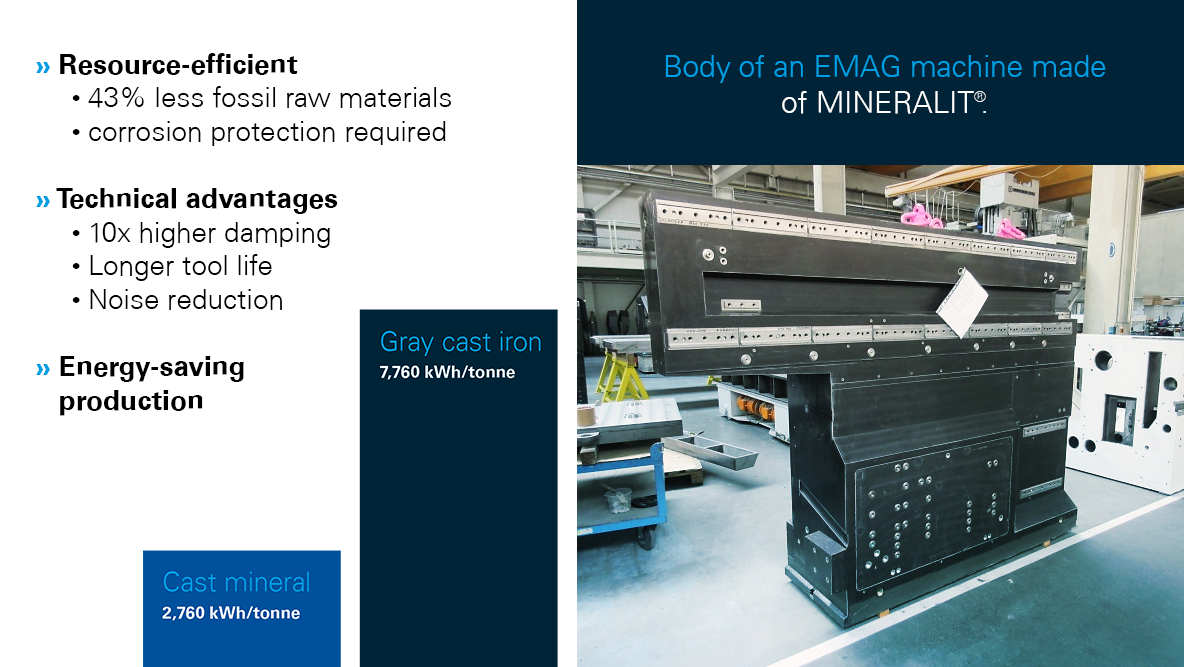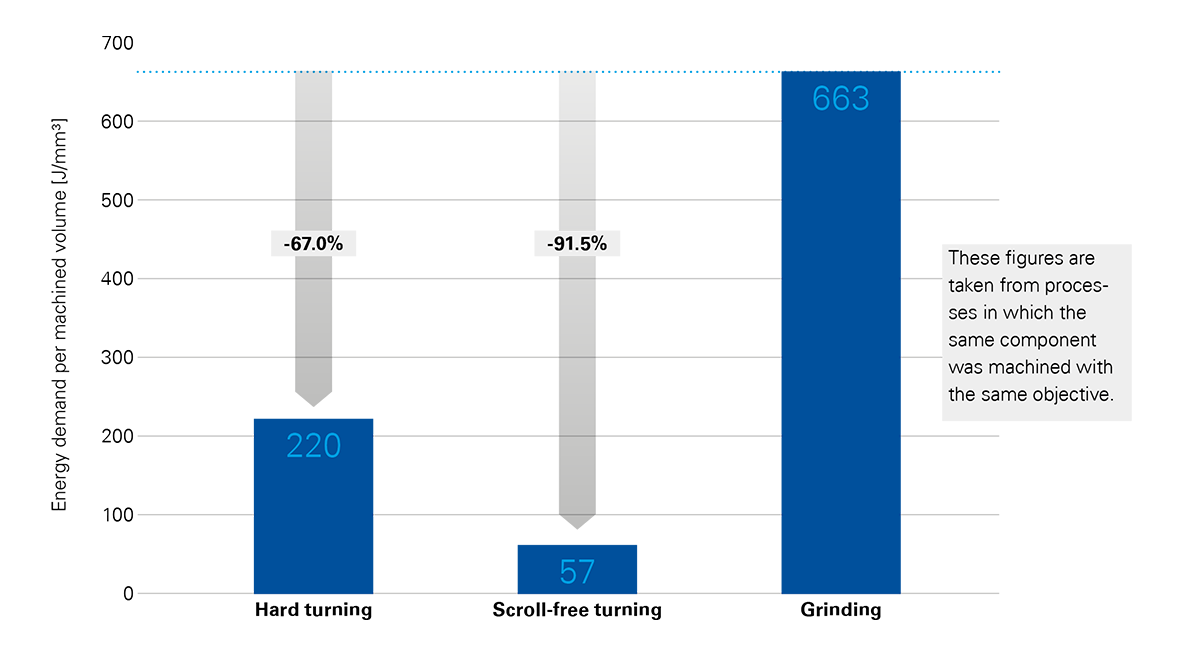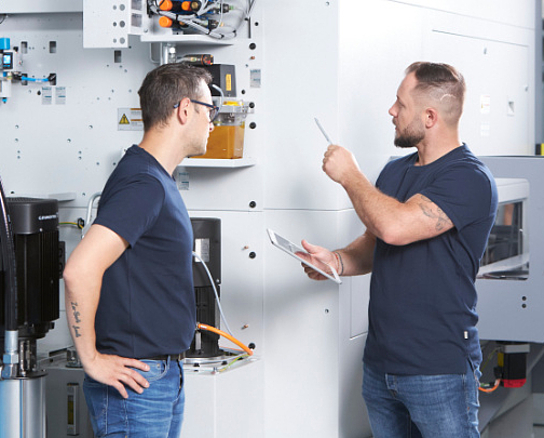Energy efficiency at EMAG: focus on efficient manufacturing processes
EMAG has always placed emphasis on efficiency, which is of great importance in today's world characterized by climate change and sustainability. This commitment to efficiency was already evident in the introduction of the first machine with combined turning and grinding technology in 1996, a milestone in energy-efficient production. EMAG continuously focuses on innovation and the use of efficient manufacturing technologies to meet the demands of the modern manufacturing industry.
Mineralite casting
The mineralite casting process is characterized by low energy consumption. EMAG uses this material for the base bodies of its machines to increase rigidity, reduce vibrations and thus improve machining precision. The use of Mineralit thus contributes not only to improving product quality, but also to energy efficiency, as higher machining precision means less scrap and thus lower energy consumption.

Comparison between the production of mineralite and cast steel. It shows the significant energy savings and thus environmental friendliness achieved through the use of Mineralit.
Mineralite: The environmentally friendly alternative
When it comes to energy efficiency, the choice of the appropriate manufacturing process plays a decisive role. A particularly illustrative example is the production of the base bodies used in EMAG machines. Traditionally, these are made of steel as castings; a process that takes place at high temperatures and thus requires a high energy input.
A more efficient and environmentally friendly alternative is the use of mineralite, a mineral casting. Compared to molten steel, Mineralit is produced at room temperature and is more akin to pouring concrete. This cool production process results in impressive energy savings of over 60% compared to conventional steel casting production.
Choosing the right production process at the start of production therefore leads to a significant increase in energy efficiency.
Always the most efficient solution due to wide technological bandwidth
In addition, EMAG offers a wide range of manufacturing technologies for the machines. This makes it possible to select the best manufacturing process for each customer - also with regard to energy efficiency. An example of this is the comparison of the processes grinding, hard turning and skiving. For many workpieces and applications, the hard turning and skiving technologies are more energy-efficient than grinding. They also enable a high surface quality and dimensional accuracy, which in some cases completely eliminates the need for post-machining processes and thus significantly reduces energy consumption in production.

An infographic shows the comparison between grinding and hard turning/skiving in terms of energy consumption and machining time. The significantly lower energy consumption and shorter machining time for hard turning/skiving is highlighted.
Grinding vs. hard turning/skiving: energy-efficient machining processes
In the field of machining, the choice of the right technology plays a decisive role. Grinding machines have a high energy requirement due to the grinding spindle, the air requirement for oil-air lubrication, and the preparation of the lubricant. A lathe, on the other hand, offers energy advantages. If one compares grinding and hard turning of the same component, it can be seen that hard turning or skiving enables energy savings of up to 90%. In addition, the machining time is significantly reduced. For example, the machining time for an axle journal could be reduced from 15 seconds for grinding to just 3 seconds for skiving turning. This reduces the energy requirement per workpiece immensely.
Energy efficiency is not just a buzzword for EMAG, but an integral part of its corporate philosophy and production strategy. By focusing on efficient manufacturing processes, EMAG contributes to making industrial production more efficient and sustainable while strengthening competitiveness.





